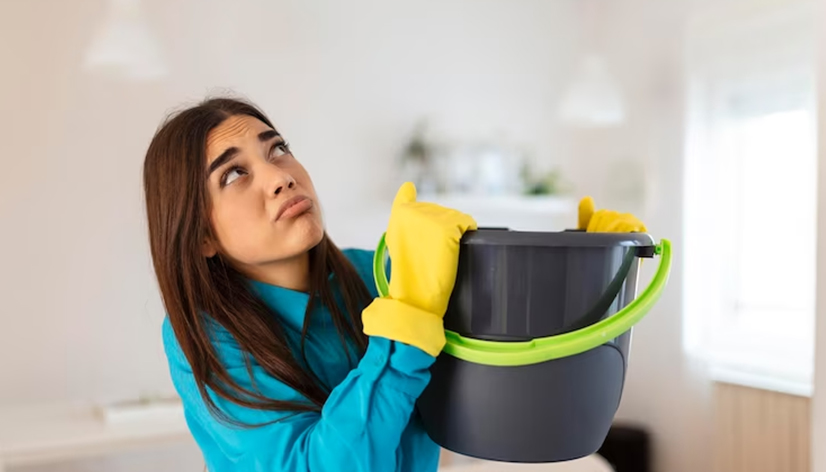
Water Proofing
Elevate Your Space with Waterproofing Services
Waterproofing services refer to the various techniques and processes employed to prevent water from entering and damaging a building or structure.
Waterproofing is crucial in construction to protect the integrity of the building, prevent mold growth, and extend the lifespan of the structure. It is commonly applied to basements, roofs, balconies, bathrooms, swimming pools, and other areas susceptible to water intrusion.
There are several methods and materials used for waterproofing, depending on the specific requirements and the type of structure being treated. Some common waterproofing methods and materials include:
Membrane Waterproofing
This involves applying a waterproof membrane, often made of materials like bitumen, PVC, TPO, or EPDM, onto the surface to create a barrier against water penetration.
Cementitious Waterproofing
This method involves using cement-based materials or coatings that are mixed with additives to enhance water resistance. These coatings are often applied to concrete surfaces.
Liquid Waterproofing Membranes
These are liquid coatings that are applied directly to the surface and form a seamless barrier when they cure. They can be spray-applied or rolled on.
Injection Waterproofing
This method involves injecting specialized materials, such as polyurethane or epoxy, into cracks and voids to seal them against water penetration.
Sheet Waterproofing
Sheet materials like self-adhesive bitumen sheets or rubberized asphalt sheets are applied to surfaces to create a watertight seal.
Crystalline Waterproofing
This method involves the use of crystalline admixtures, which react with water and unhydrated cement particles to form crystals that block the pores in concrete, making it waterproof.
Bentonite Waterproofing
Bentonite clay panels or sheets are used to create a barrier that swells when it comes into contact with water, effectively sealing against water infiltration.
Polyurea Coatings
These fast-curing coatings are often used for quick and seamless waterproofing solutions, especially for areas with complex shapes.
Green Roof Waterproofing
For roofs with vegetation, a specialized waterproofing system is used to protect the structure from water and root penetration.
When considering waterproofing services, it's essential to work with experienced professionals who can assess the specific needs of your structure and recommend the most appropriate method and materials. Improper waterproofing can lead to serious issues down the line, such as structural damage, mold growth, and compromised indoor air quality.
Frequently Asked Questions - FAQs
Certainly, here are some frequently asked questions (FAQs) related to waterproofing:
-
What is waterproofing?
Waterproofing is the process of making a surface or structure resistant to the penetration of water, moisture, and other liquids. It's commonly used to prevent water damage, leaks, and deterioration.
-
2. Where is
waterproofing commonly used?
Waterproofing is used in various areas such as basements, roofs, foundations, bathrooms, balconies, decks, swimming pools, and tunnels to prevent water intrusion and moisture-related issues.
-
Why is waterproofing important?
Waterproofing prevents water from seeping into structures, which can cause structural damage, mold growth, and health hazards. It also helps extend the lifespan of the building materials.
-
What are the signs
that my property needs waterproofing?
Signs include damp or musty odors, water stains, peeling paint, cracked or deteriorated surfaces, and visible mold or mildew growth.
-
What are the
different methods of waterproofing?
There are various methods such as membrane systems (liquid or sheet membranes), cementitious coatings, crystalline waterproofing, injection systems, and exterior coatings.
-
Can I waterproof
a structure myself?
While there are DIY waterproofing products available, waterproofing is a specialized process that requires proper knowledge, techniques, and materials. For best results and long-lasting protection, it's recommended to hire professionals.
-
How long does
waterproofing last?
The lifespan of waterproofing depends on factors like the quality of materials, application method, and environmental conditions. Well-applied waterproofing can last for many years, but periodic maintenance might be needed.
-
What's the
difference between water-resistant and waterproof?
Water-resistant materials can resist the penetration of water to some extent but are not fully waterproof. Waterproof materials prevent water penetration entirely.
-
Is waterproofing
only for new constructions?
No, waterproofing can also be applied to existing structures to repair damage, prevent leaks, and improve overall durability.
-
Can
waterproofing be done in rainy seasons?
Depending on the method used, waterproofing can often be done in various weather conditions. However, some methods may require dry conditions for optimal results.
-
Can I apply
paint over waterproofing materials?
Some waterproofing materials can be painted over, but it's essential to follow manufacturer guidelines. Waterproofing products are designed to maintain their effectiveness even when painted.
-
How do I choose
the right waterproofing solution for my project?
Consult with waterproofing professionals to assess the specific needs of your project. The choice depends on factors like the type of structure, location, budget, and expected level of water exposure.
-
Can
waterproofing prevent basement leaks?
Yes, proper basement waterproofing can prevent leaks, moisture buildup, and flooding in basements, preserving the structural integrity of your property.
